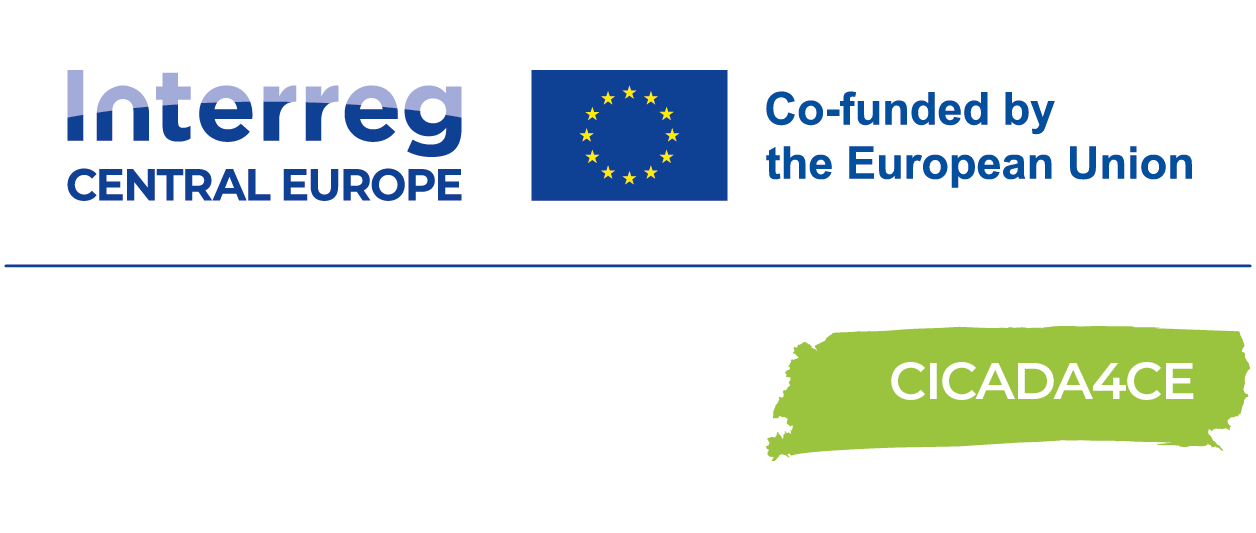Efficiency of the ClImate Change ADAptation management by integration of ecosystem services and smart social approaches in Central European cities
Start Date: 01/06/2024
End Date: 30/11/2026
Web Site: https://www.interreg-central.eu/projects/cicada4ce

The CICADA4CE project, involving 12 partners within the framework of the Interreg Central Europe cooperation programme, addresses the main challenges related to climate change in urban areas: sudden flooding caused by torrential rains, strong winds, prolonged droughts, and overheating phenomena that generate so-called “heat islands”. The proposed approach aims to strengthen urban climate resilience by mobilizing social and ecological capital, enhancing synergies between technical, social, and environmental innovations.
A central element is the active involvement of local communities: raising citizens’ awareness, encouraging their participation in the definition of adaptation strategies, identifying concrete territorial actions, and managing shared responsibilities in the implementation phases. This process not only enables the development of effective solutions but also fosters collective learning that reinforces a sense of responsibility and belonging. The goal is to trigger a domino effect capable of producing lasting and replicable benefits on a larger scale.
The project also seeks to encourage a change in mindset and behaviour among both citizens and administrations, guiding them towards common climate adaptation goals. CICADA4CE combines the growing awareness of the urgency to adapt to climate change with the enhancement of ecosystem services, recognized as key tools for strengthening urban resilience. Once awareness of their potential has been spread, the project promotes concrete actions to mobilize this potential within cities.
The approach is therefore based on ecosystem- and community-based adaptation, applied through local action plans and tested via pilot initiatives, which will allow innovative, transferable, and sustainable solutions to be developed in the long term.






